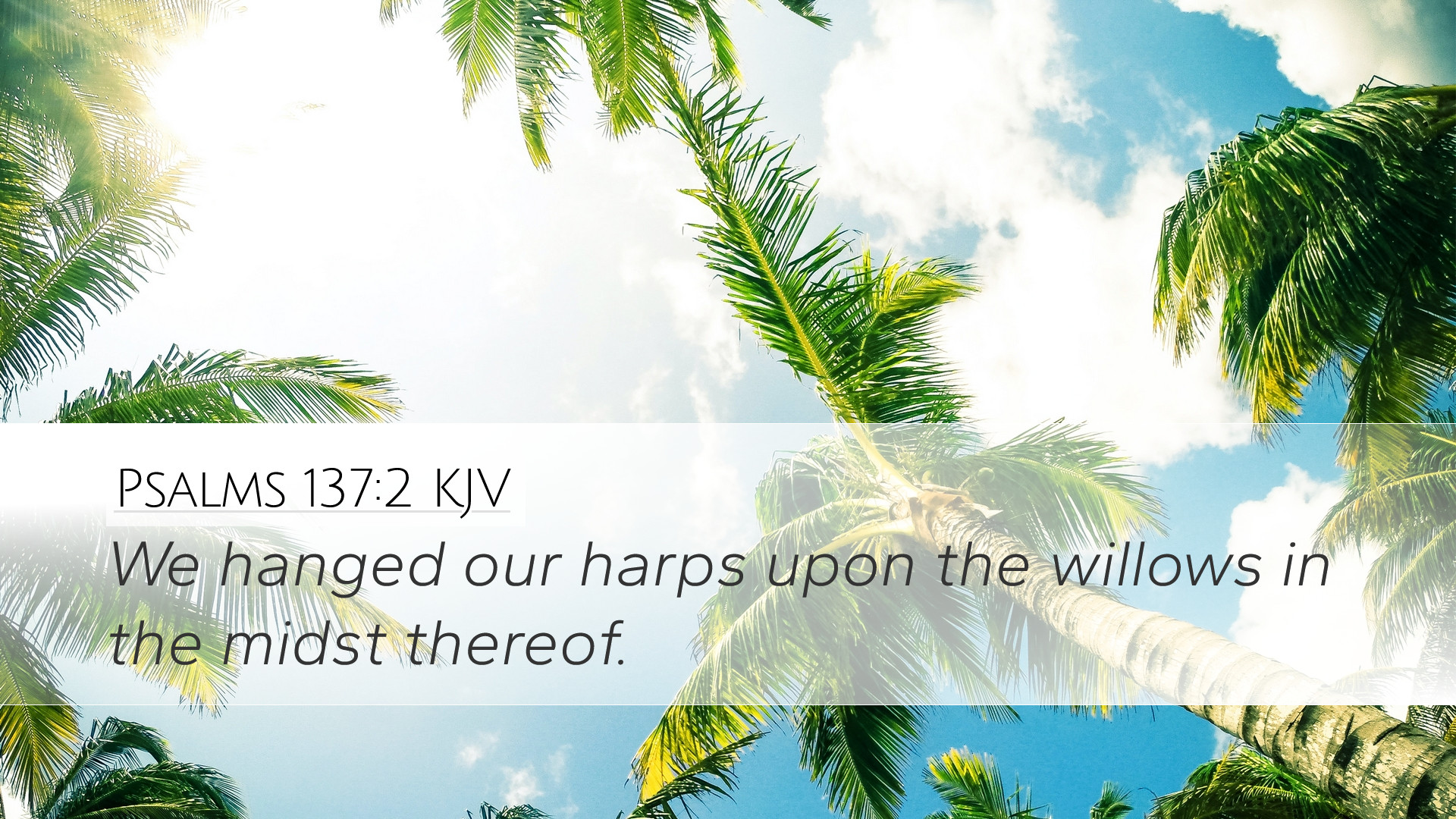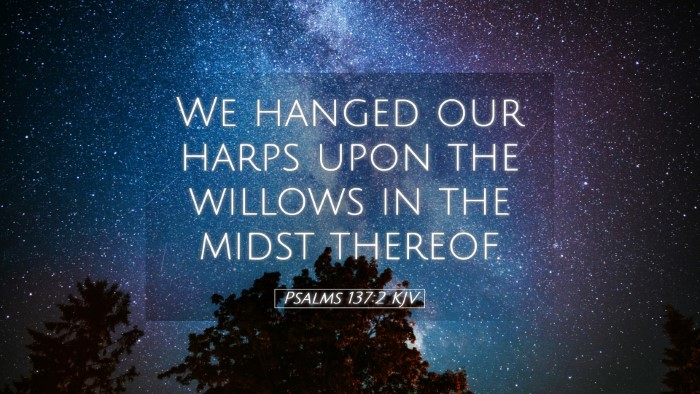Psalms 137:2 Commentary
Verse Text: "We hung our harps upon the willows in the midst thereof."
Overview of Psalm 137
This psalm speaks profoundly about the Israelites' sorrow during their Babylonian exile. It encapsulates their longing for Jerusalem and highlights the theme of lamentation in exile.
Contextual Background
The context of Psalms 137 is crucial for understanding its depth. After the Babylonian conquest of Jerusalem, the Israelites found themselves uprooted and displaced. They were commanded to sing the songs of Zion while they mourned their homeland:
- Historical Setting: The Babylonian captivity was a severe trial for the people of Israel, representing both physical and spiritual dislocation.
- Theological Implications: This psalm reflects Israel's deep connection to their homeland, which was not merely a geographical place but a manifestation of their covenant relationship with God.
Interpretation of Key Phrases
The verse "We hung our harps upon the willows in the midst thereof" conveys several theological and emotional dimensions:
- Symbolism of Harps: Harps were instruments of praise and joy. Their hanging symbolizes the abandonment of worship and joy in the face of grief, suggesting a state of deep despair.
- Willows as a Symbol of Mourning: Willows are often associated with sadness and mourning. Their choice signifies the environment of sorrow surrounding the exiles.
- Midst of Exile: This phrase highlights the painful juxtaposition of once singing God's praises in Zion versus their current state of desolation.
Commentary Insights
Matthew Henry's Insights
Henry reflects on the deep sorrow of the Israelites, noting that their mournful state led them to abandon their musical instruments:
- The Despair of Exiles: He describes their sentiment as one of forgetting joy in the face of their trials, emphasizing the weight of loss that led them to hang their harps.
- The Loss of Worship: Henry admonishes that this act signifies a departure from worship and raises the question of how to maintain joy in the midst of suffering.
Albert Barnes' Reflections
Barnes provides an expository approach, focusing on the literal and figurative elements of this verse:
- Literal Interpretation: He draws attention to how the physical act of hanging their harps symbolizes a deeper spiritual disconnect and a mourning of their lost heritage.
- Spiritual Message: Barnes notes that the act of hanging the harps on the willows should serve as a reminder to believers of the importance of maintaining a posture of worship, even in despair.
Adam Clarke's Analysis
Clarke elaborates on the emotional and cultural implications of this verse:
- Emotional State: Clarke emphasizes the depth of emotion involved, expressing how the exiles felt their instruments could no longer serve a purpose in their lamentation.
- Cultural Significance: He discusses the importance of songs in Jewish culture and how this act serves as a powerful illustration of cultural and spiritual loss.
Theological Reflections
The theological reflections drawn from this verse can be profound:
- The Nature of Lament: The psalmist exemplifies a biblical response to suffering—lament. It encourages believers to bring their sorrows before God without pretense.
- Restoration of Joy: The hanging of harps serves as a poignant reminder that mourning is part of the human experience, yet it opens the door for future restoration and joy in worship.
Conclusion
Psalms 137:2 serves as a timeless reminder of the struggles faced by those who undergo severe trials, like exile or persecution. This commentary draws from revered biblical scholars to illuminate the emotional, spiritual, and cultural ramifications of this text, emphasizing the importance of remembering our heritage, the significance of our worship, and the hope of ultimate restoration.


